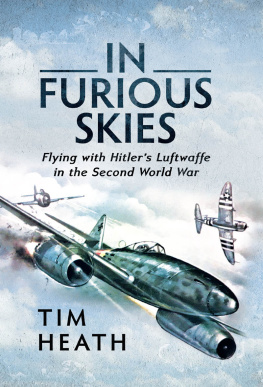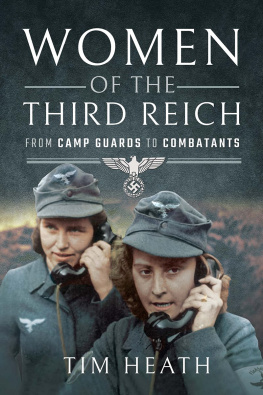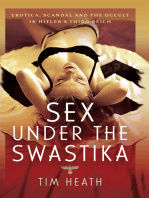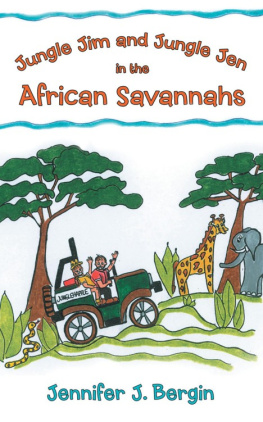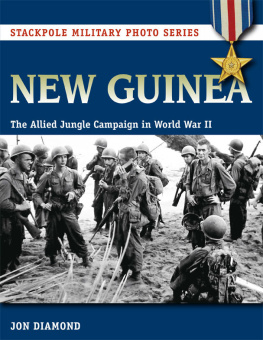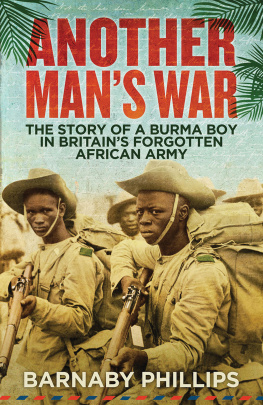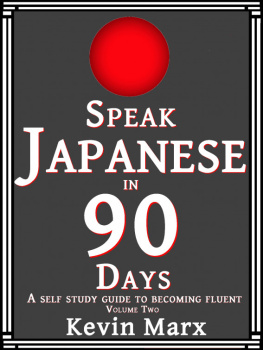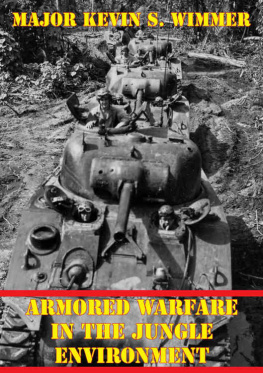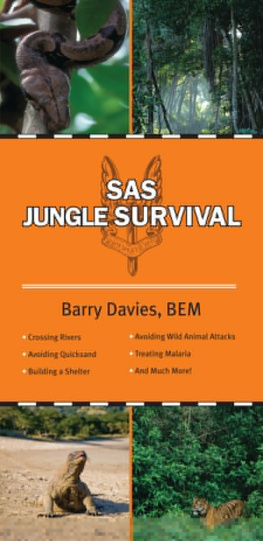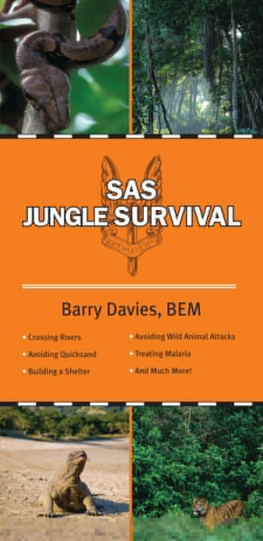To the memory of Colin & Brian Heath and David & Phillip Allsop
First published in Great Britain in 2021 by
PEN AND SWORD HISTORY
An imprint of
Pen & Sword Books Ltd
Yorkshire - Philadelphia
Copyright & Tim Heath, 2021
ISBN 9781526759863
eISBN 9781526759870
Mobi ISBN 9781526759870
The right of Tim Heath to be identified as Author of this work has been asserted by him in accordance with the Copyright, Designs and Patents Act 1988.
A CIP catalogue record for this book is available from the British Library.
All rights reserved. No part of this book may be reproduced or transmitted in any form or by any means, electronic or mechanical including photocopying, recording or by any information storage and retrieval system, without permission from the Publisher in writing.
Pen & Sword Books Limited incorporates the imprints of Atlas, Archaeology, Aviation, Discovery, Family History, Fiction, History, Maritime, Military, Military Classics, Politics, Select, Transport, True Crime, Air World, Frontline Publishing, Leo Cooper, Remember When, Seaforth Publishing, The Praetorian Press, Wharncliffe Local History, Wharncliffe Transport, Wharncliffe True Crime and White Owl.
For a complete list of Pen & Sword titles please contact
PEN & SWORD BOOKS LIMITED
47 Church Street, Barnsley, South Yorkshire, S70 2AS, England
E-mail:
Website: www.pen-and-sword.co.uk
Or
PEN AND SWORD BOOKS
1950 Lawrence Rd, Havertown, PA 19083, USA
E-mail:
Website: www.penandswordbooks.com
Introduction
As a young lad who joined up to become a soldier, I never imagined the horrors of war that were to come. I returned home not only a victorious Allied soldier, but also a man capable of killing without any remorse whatsoever. I hated them [the Japs] and I still do to this day.
Carl Marksham, British Fourteenth
Army veteran, May 2010
On 8 December 1941 the British Empire, Canada and the Netherlands declared war on the Empire of Japan. The declaration of war was announced following Japanese attacks on British interests in Malaya, Singapore and Hong Kong. It was on that same date that the United States of America also issued their declaration of war against the Japanese. The surprise Japanese attack on the United States naval base at Pearl Harbor in Hawaii the previous morning heralded Americas entry into the Second World War. China and Australia followed suit, issuing their declaration of war against Japan the next day. Four days later Germany and its Axis ally Italy both declared war against the United States.
For the British the United Statess entry into the war could not have come soon enough. Although Britain was holding her own against the fury of the German Luftwaffe, it was perfectly clear to many that she could not defeat the might of Nazi Germany on her own. In this sense the Japanese attack on the United States could be seen today as a serious tactical blunder on the part of the Axis. The Japanese Empire had seriously underestimated both the resolve of the British combined with the industrial might of America. Although a long, difficult road to victory lay ahead for the Allies, both Britain and America were determined to destroy any dream of Japanese expansionism in Asia and the Pacific by combined military effort.
The war against the Japanese, particularly in the dark, humid jungles of Asia and the Pacific, would be completely different from the one that was being fought against the Germans in Western Europe. It would be a war requiring a special form of courage, ingenuity and resolve in terrain often thought impossible to fight in by western standards. Initial British engagements with the Japanese forces in the jungles of Asia proved disastrous. Many British soldiers had convinced themselves that the jungle could not be mastered, that the Japanese had somehow become supermen overnight. Many were psychologically beaten before even engaging their Japanese enemy. The reality was that the jungle was just as harsh upon the Japanese as it was on anyone else. The major difference between British and Japanese soldiers was that the Japanese had learned to master the jungle in a way their British counterparts had not. The Japanese soldier was a greatly feared foe and for very good reason. The Japanese soldier was well equipped, and he was prepared to endure hardships that most Westerners would find intolerable, in order to secure victory for his Emperor. Bound by the warrior code of bushido, the Japanese soldier possessed a suicidal bravery in the face of even the most overwhelming odds. He would offer no surrender or ground to his enemy, preferring death to what he interpreted as dishonour. He possessed little to no compassion at all for his enemy and would kill with any means at his disposal. He could fight with a rifle, bayonet, knife or sword. He was a ruthless, brutal and unforgiving foe in every respect. As a result, the British forces tasked with fighting the Japanese enemy had to not only learn through bitter experience how to master the jungle but also how to effectively fight the Japanese who utilized the jungle to such cunning advantage. To the credit of the British, Indian, Nepalese, Australian and American forces engaged in dislodging the Japanese from their jungle strongholds, the lessons that would bring about victory were ultimately mastered. In turn, the Allied forces fighting the Japanese would also express little in the way of mercy toward their Asian enemy.
In this volume we will examine previously unpublished accounts of the jungle war against the Japanese in the Second World War. There are some events within the pages of this work that the reader may find too horrific to comprehend. The fact that human beings could be capable of such barbarity even in the name of war is sobering upon reflection. What is presented here is not only an analysis of how Allied ingenuity prevailed under difficult conditions to secure victory, a victory achieved over a particularly tenacious and barbarous enemy, but also the dividing line between the consciousness of the individual and how he conducts himself when faced with an enemy devoid of all human compassion.
Chapter 1
The Japanese: Origin of the Asian Enemy
From the moment the Second World War ended with the surrender of the Japanese, announced on 15 August 1945 and formally signed on 2 September 1945, historians have sought to understand the mentality behind the conduct of the Japanese military forces during the war. As an Asian race, the Japanese were of course different from westerners in cultural and religious perspectives, which is to be expected. Surely as fellow human beings they would have experienced much the same emotions, too? They would have lived, laughed, cried and mourned in much the same way as we in the western hemisphere despite the cultural and religious differences.




